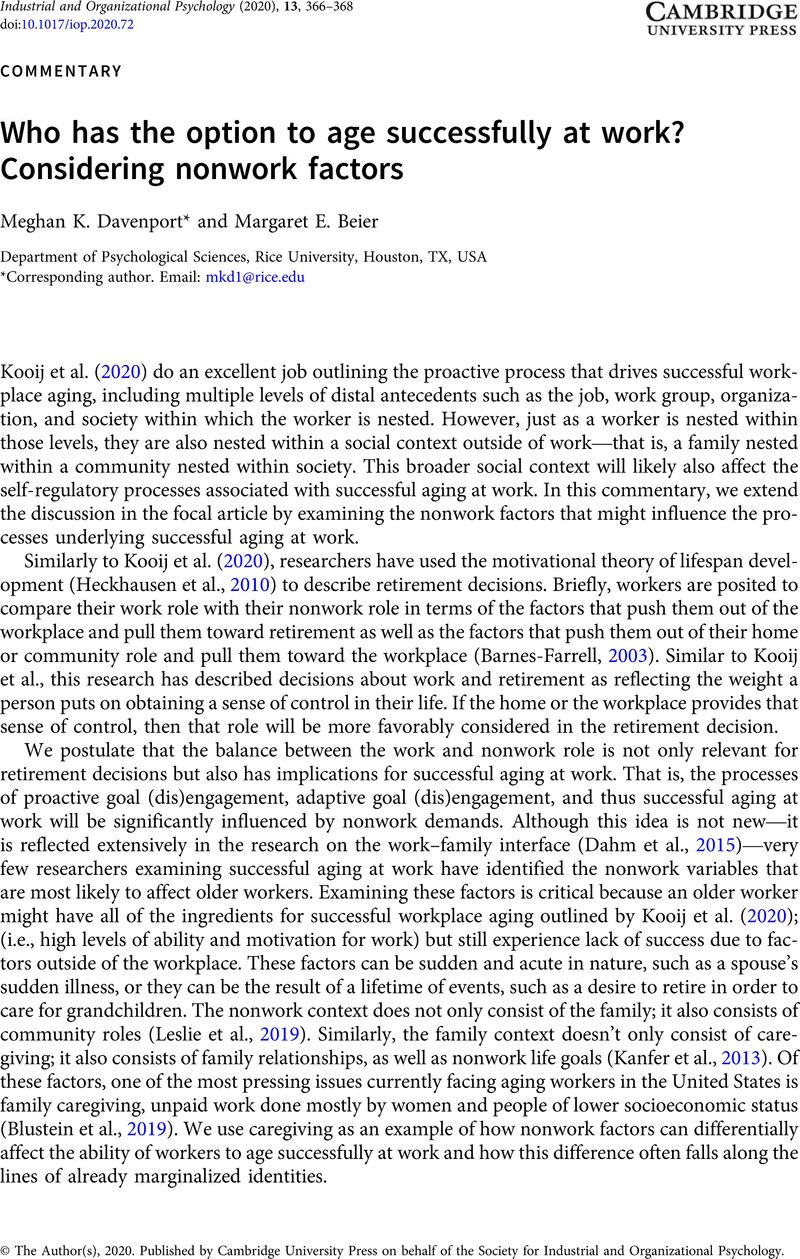Stoiko, R. R. (
2015).
Familial caregiving and timing of retirement: A gendered cohort analysis [Doctoral dissertation, West Virginia University]. Graduate Theses, Dissertations, and Problem Reports. 6731.
https://researchrepository.wvu.edu/etd/6731
Google Scholar 